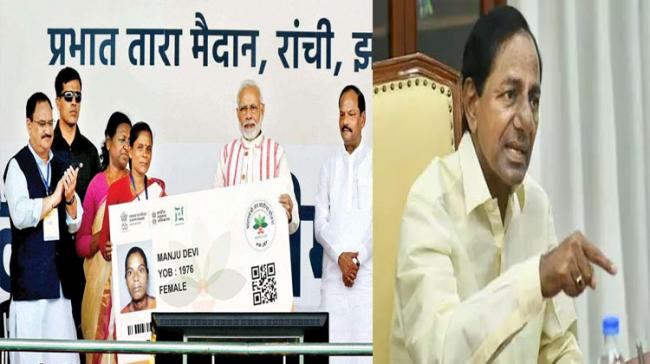Arogyasri, Ayushman Bharat: Roadblocks, Expectations And Outcomes Of Healthcare

Anvesh Reddy
An overwhelming 4 per cent of India's 1.25 billion population moves below poverty line due to the burden of healthcare related expenses. The distorted state of our public healthcare system, which is meagrely fuelled by the government with just over 1% of the GDP spent on it year after year, is nothing akin to the state of private healthcare sector. That India's spending on healthcare to GDP ratio is among the lowest in the world says it all.
Prime Minister Narendra Modi launched the Ayushman Bharat - Pradhan Mantri Jan Aarogya Yojana (AB-PMJAY) scheme, the world's largest government funded mass healthcare program, yesterday, seven months after its announcement. Will Modicare, as the scheme is called, be a game changer?
The rollout of the scheme comes at a time when the faith on public healthcare is dwindling -- as many as 278 deaths were reported in the BRD Medical College Hospital in Gorakhpur, the home constituency of Uttar Pradesh Chief Minister Yogi Adityanath. However, it would be harsh to not accept that Ayushman Bharat, under which the secondary and tertiary medical care expenses of upto Rs 5 lakh would be covered for more than 10 crore poor and lower middle class families. The beneficiaries could visit public and empanelled private hospitals for treatment under the scheme.
According to the rural database of the Socio Economic and Caste Consensus (SECC) 2011, over 50 lakh citizens have been identified as badly needing free healthcare, which otherwise would mean ill-health, unproductiveness and may sometimes lead to death only because of unaffordable quality healthcare. The SECC data classified the eligible beneficiaries as families with/who are landless households dependent on physical labour, SC/ST, differently abled, households dependent on working adult females, manual scavengers, tribal groups, destitute, homeless etc.
The biggest challenge to the scheme lies in mobility of a huge chunk of beneficiaries, the poor and needy families living in far flung remote places. Tamil Nadu provides free medicine to the beneficiaries under its healthcare scheme. Does PM Modi intend to provide after-treatment support (medicines, follow-up etc) to the beneficiaries?
Telangana government has already announced that it would not implement the Central scheme, as it feels that its existing scheme, Arogyasri would serve better to the needs of more number of beneficiaries than under Ayushman Bharat, which is criticized for its stringent eligibility criteria. Caretaker CM K Chandrashekar Rao's decision to snub Modicare also stems from his idea of decentralizing agriculture, education, rural and urban development, drinking water and health to the States. KCR has been stressing the need for decentralization from the Centre, ever since he floated his plan to form a Federal Front.
In another setback to the Centre Delhi, Punjab, Kerala and Odisha also announced their decision to implement their own, existing healthcare schemes.





